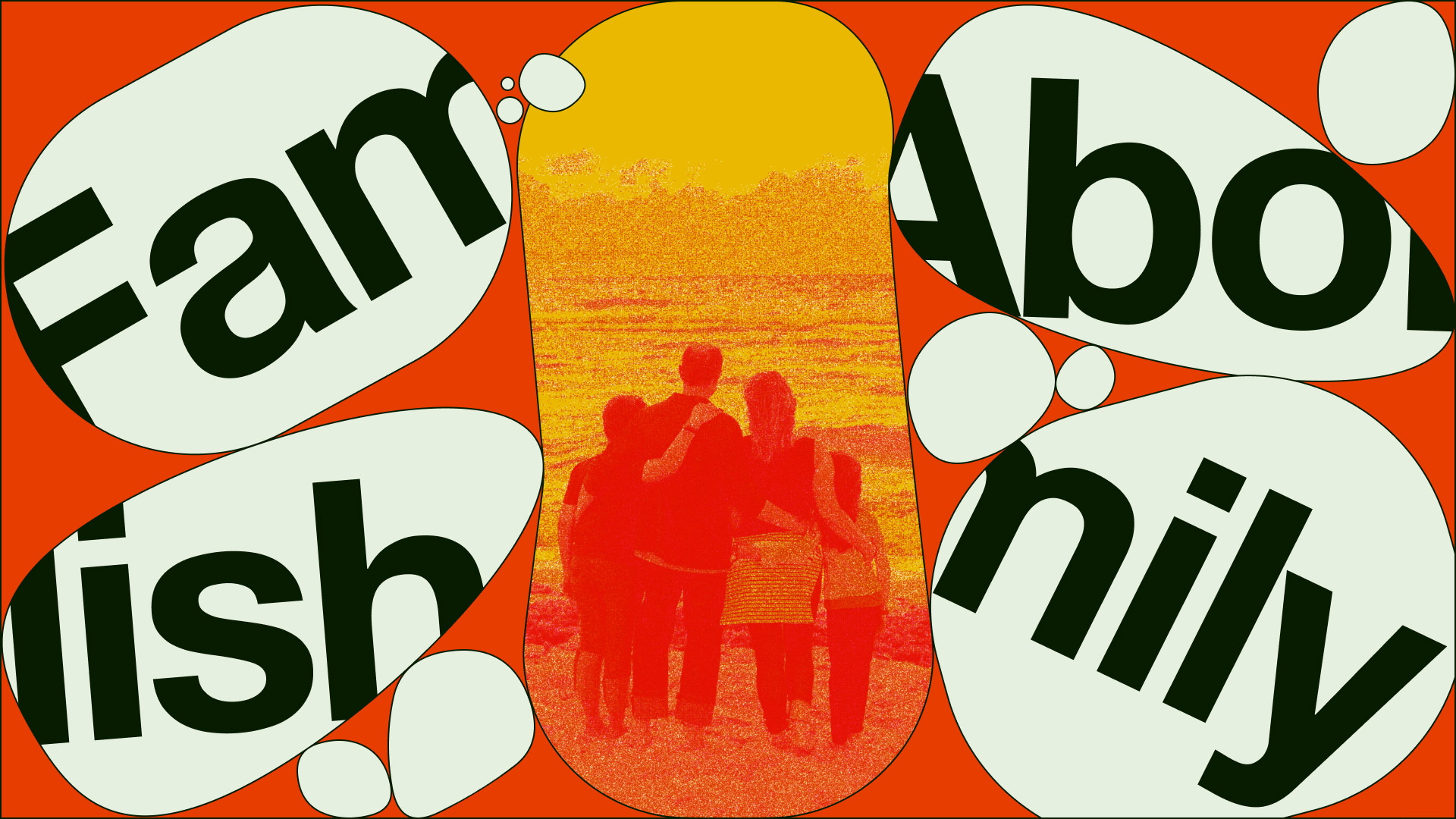It’s Time to Abolish the Family

In the middle of a care crisis, the idea that we’d abolish the family seems bizarrely cruel. Only the other day we were told that working people would be plunged into poverty to pay for the crisis in social care (and even that will be completely inadequate). We know that, when we are ill or disabled, it’s going to be our family that picks up the pieces, because there’s little else there. We know that the burden of care is increasingly being pushed into the home – specifically, onto women in those homes – as public care, already threadbare after years of austerity, is shredded by the pandemic.
So why have queers like Gay Liberation Front, militant Black mothers like those written about by Hortense Spillers and feminists like Shulamith Firestone called for the abolition of the family since the 1970s? And why are those calls being renewed by the likes of Sophie Lewis, Jules Gleeson, Kate Griffiths, Michelle O’Brien and Madeleine Lane-Mckinley?
To avoid any ambiguity I think we need to be really clear on what ‘abolish the family’ actually means. It means that you, specifically, will never be allowed to see your gran EVER AGAIN and you will be obliged to denounce your parents in the town square.
— Magic Money Tree 🌴 (@charlottor) December 28, 2021
Well, there’s its role in capitalism. The nuclear family was a nineteenth-century invention for efficiently reproducing bodies suitable for work. Instead of extended networks of kin and others, families are compact units where most care is performed by one or two overworked individuals. These individuals are usually feminised and, as the pandemic grinds on after a decade of austerity, they are buckling under the strain. The family makes care dependent on whether you have a supportive family. It privatises care: if you do not have a supportive family, that’s not anyone else’s problem. And it instrumentalises care, putting it in the service of work-readiness rather than being an end in itself. This lean, efficient, capitalist family is the workshop, not only of workers’ bodies, but of their values: discipline, respect for authority, and the repression of aberrant desires: queerness, idleness, excess. But, as we know and feel, care is always more than this. The social reproduction of bodies and minds for work is always also the production of humans – living, breathing and strange. Even the leanest family produces an excess of humanity.
Most of all though, we want to abolish the family because it’s not enough.
‘Abolish the family’ as in abolish property relations, abundance of love and care for all and by all. Don’t let them tell you otherwise.
— madeline lane-mckinley (@la_louve_rouge_) December 28, 2021
Abolishing the family means building structures of care, love and intimacy that are adequate to our needs. It means care for everyone. Not distributed randomly according to who you end up being conceived by, not tied into monadic couples, but made abundantly available to everyone.
One of the things that abolishing the family means is that you don’t have to depend for your care on relations that might also be violent. Most rapes happen at home. Most child abuse occurs within the family. And, predictably, pandemic stay-at-home orders led to a spike in abuse. The system of depending on one or two people for your care particularly harms the queer dependents of homophobes.
Whoever your immediate relatives are – loving or indifferent, nurturing or abusive – shouldn’t matter. Whatever your needs are – as a child, an elderly person, a disabled person or just someone who needs nurturing. You should have these needs met. Not by a lottery of birth, not by one or two overworked individuals, but by the universal social infrastructures of care we build for ourselves and each other to live joyfully.
Abolishing the family is like abolishing capitalism: it’s utopian. It points to another world and says “Let’s go there.”
Where?
Could you imagine the utopia we could create, if we just took care of each other? If we looked at every man, woman, and child as our family
— Trillmonger (@TheRealJayJuice) June 14, 2016
Your flat opens out onto a canteen in communal gardens, where we eat together, our slippered feet on heated floors. You live within a few minutes of many of your closest friends. Some of your friends you have known since you were in the crèche together, playing in the woods and in the streets, with your teachers, some of whom you still also know.
One of your mothers lives nearby, too. He is too frail now to get the tram by himself, but there is a rotating group of helpers who go with him from the neighbourhood branch of the city’s millions-strong Universal Care Cooperative, whose purview is as comprehensive as people’s needs. They can help when you’re old or have the flu or on general bad days, or when you need something heavy getting down from a high shelf and everyone else is out at the movies. With the help of the UCC the frail mother swings around the city visiting his friends, gardening the city’s winding networked forest garden and napping on ergonomic benches by the side of brooks where otters live.
You yourself are part of the UCC and help a neighbour with cerebral palsy – Jolene – in the canteen on Wednesday nights, and with the painting therapy group she runs. Jolene can’t cook for herself in her flat kitchen, but the city’s many gourmet canteens mean nobody needs to make food privately unless they would like to. Jolene has given birth five times and plays an active role in many children’s lives, as do all their other mothers, and their teachers and friends.
You might give birth yourself one day (whether or not you were born with a uterus). That could be an interesting experience, one that doesn’t come with any expectation of future involvement in childrearing. Many people who give birth stay involved; others don’t. If you want to help raise a child, you join the crèche, either as a teacher or a mother. Becoming a mother is a two-decade commitment, involving a clear agreement with a group of other mothers (more than three, usually fewer than eight, at least in early years) who will be assigned to the same child. You can leave the mother agreement whenever you want, but neither entering into nor leaving it is something to be taken lightly. These decisions can be left for another day, though – becoming a mother can happen whenever, from early adulthood to old age. For now, you are going to get a massage at the local art nouveau communal bathing pavilion with a friend.
Here and now in the 2020s, care beyond the family is already a reality. Queers and other refugees from the nucelar family have been nurturing each other since before the nuclear family was a thing. We’ll carry on doing it long afterwards. Let’s respect, acknowledge and expand these non-related relations of care, through our commitments to each other, and through our struggles to end lonely mean capitalist misery. Let’s build the world our loved ones deserve. Let’s abolish the family.
Judy Thorne is an anthropologist of utopian desire living in Manchester.


